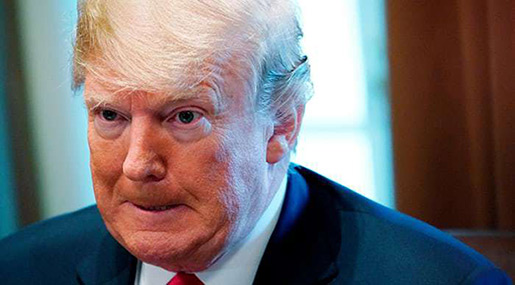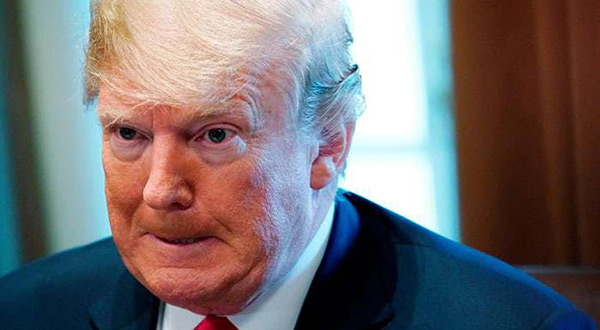
Trump’s Cruel Border Policies Created A Needless Crisis. It’s Far From Over

Richard Wolffe
Was it the "tender age" inmates, the rare sight of all the Senate's Republicans growing a spine, or the even rarer sight of intervention from every one of the nation's first ladies?

We'll never know the truth behind Donald Trump's humiliating reversal of his own brutal policy of separating thousands of immigrant children from their parents at the border.
But we do know that Trump will lie about his actions, and will be utterly incompetent about fixing the crisis he created.
First, the most glaring lies. This is not a humane policy replacing an inhumane one. Instead of imprisoning children separately, the United States will now imprison them together with their parents indefinitely. That's for the misdemeanor of crossing the border illegally, even though it is perfectly legal to claim asylum at the border or after crossing the border.
There are several reasons why previous administrations - including President Obama's - found it hard to imprison families, even as they engaged in their own crackdowns on illegal immigration. Yes there were legal constraints on jailing children for more than 20 days, whether alone or with their parents. But there are also practical limits, as well as moral ones: where on earth is the United States going to imprison all these families?
So spare us the pretense - and the lazy reporting - about Trump's newfound moral compass. When Anthony "The Mooch" Scaramucci is testifying about your compassion, you need to find better character witnesses. You also should tell him to stop blaming other White House officials for his own disastrous policies.
The policy reversal is itself a lie that gives the lie to another dozen lies. Trump did not need to sign an executive order to end the separation of young children from their mothers and fathers. He could have just picked up the phone to tell his attorney general to stand down, just as Jeff Sessions ordered up the new policy from his own officials earlier this year.
How could it be so easy to change a policy that Trump's own secretary of homeland security, Kirstjen Nielsen, insisted was not in fact a policy? What happened to the legal principles she so bravely defended at the White House podium just two days ago?
"Here is the bottom line," she said, before deciding to eat Mexican food at a DC restaurant the next day. "DHS is no longer ignoring the law."
That law was so Monday, Madam Secretary.
So if this wasn't really about the law, what was this self-instigated crisis about? Fortunately the man behind the disaster is an open book when it comes to the strangely sociopathic behavior that has become his policy.
"The dilemma is that if you're weak, as some people would like you to be, if you're really, really pathetically weak, the country's going to be overrun with millions of people," said the really, really pathetically weak soul sitting in the president's chair on Wednesday. "And if you're strong, then you don't have any heart. That's a tough dilemma. Perhaps I'd rather be strong but that's a tough dilemma."
Sorry, Mr President. A tough dilemma is how to keep your sanity when your baby or toddler has just been ripped from you by immigration officers.
For most normal adults, this is an astonishingly simple choice: do you prove your toughness by brutalizing children or do you treat them with the essential sympathy that we like to call human nature?
Trump's tough man pose is not a million miles away from the simple choice that George W Bush laid before a terrified nation after the 9/11 attacks: you're either with us, or with the terrorists. That simple choice opened the door to human rights abuses that represent war crimes in any other country.
But there was at least one glaring difference between the politics of these two supposedly tough dilemmas: President Bush was widely seen as protecting Americans from a threat that killed several thousand people.
What exactly is Trump protecting Americans from by caging all those children? He can only talk darkly about the MS-13 gang, which in fact targets immigrant children. The threat of MS-13 might be very real in parts of Long Island, but it hardly justifies the abuse of thousands of children.
This is not the end of the story, of course. Just like the botched Muslim travel ban, we know that Trump's worst instincts don't simply disappear. They metastasize into other forms of immigrant persecution and racial politics.
The Trump administration is already taking the unprecedented steps of seeking to deport naturalized US citizens by de-naturalizing them for breaching immigration rules before they became full citizens. It's hard to imagine how this is related to MS-13 gangs, because of course the supposed threat has nothing to do with what the Trump administration is actually doing.
However, this is also not the end of the story for the thousands of children currently separated from their parents. The sad truth is that some of them will never be reunited with their parents. This is coldly called permanent separation. But it is in fact the US government turning children into orphans. For parents already deported, or for children too young to speak, this is the kind of threat that is as terrifying as terrorism itself.
Some people have suggested this crisis of Trump's making is his own personal Katrina: the hurricane that laid bare the incompetence of the Bush administration.
It isn't. That's because there was Maria: another hurricane that killed three times more Americans than Katrina, because the incompetence was that much worse than anything we saw in New Orleans.
No, there are no recent American comparisons to the child cruelty of this man-child president. There's only the permanent shame of a president and his willing aides who punished children because their parents wanted to give them a better life.
Source: The Guardian, Edited by website team
Comments



